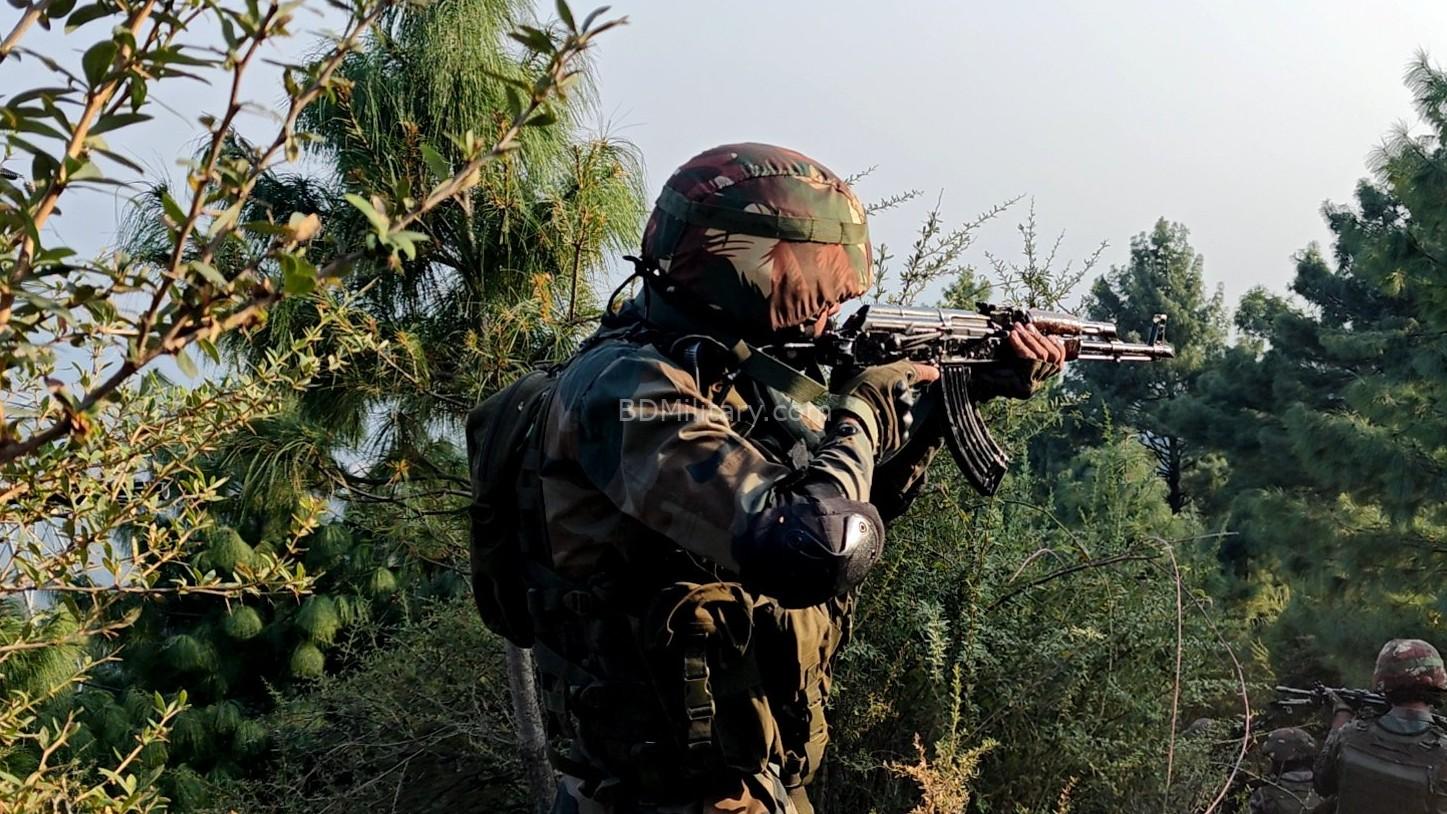A four-member team from the Indian Army’s Military Intelligence (MI) unit, led by Major General Kundan Kumar Singh, will arrive in Dhaka for a two-day visit from 14 to 16 October — a development that has stirred unease and suspicion within Bangladesh’s defence and diplomatic circles amid deteriorating relations with New Delhi.
This marks the first visit by an Indian Army intelligence delegation since the interim government under Professor Mohammad Yunus assumed office on 8 August 2024. The visit comes at a time when ties between the two countries are at their lowest ebb in decades. India is preparing to host former Prime Minister Sheikh Hasina, who is accused by the United Nations of ordering the killing of over 1,400 people during the July–August 2024 uprising that led to her ouster.
According to defence sources, the visiting delegation will engage in a series of closed-door meetings with the Armed Forces Division (AFD), Directorate General of Forces Intelligence (DGFI), Bangladesh Air Force, Army Aviation Group, and the 10th Infantry Division headquarters. The wide-ranging nature of these meetings, led by India’s military intelligence wing, has prompted speculation over New Delhi’s motives — particularly as India heads toward national elections in February 2026.
The Directorate of Military Intelligence (MI) serves as the intelligence arm of the Indian Army. Its primary mission is to provide timely, relevant, accurate, and synchronised intelligence support to the Army’s tactical, operational, and strategic needs. It also conducts counter-intelligence operations to detect and neutralise adversarial intelligence threats within the Indian Army. Approximately 3,700 personnel are assigned to intelligence duties, trained at the Military Intelligence Training School and Depot (MINTSD) in Pune. The MI’s operational geographical mandate traditionally extends up to 50 kilometres from India’s borders — making its direct engagement in Dhaka particularly noteworthy.
“This is not a routine military-to-military engagement. When a Military Intelligence delegation seeks access to multiple operational and intelligence units, it inevitably raises questions about intent,” a senior Bangladeshi defence official told BDMilitary.com on condition of anonymity.
Diplomatic analysts suggest that India’s renewed outreach reflects unease over Bangladesh’s increasingly independent foreign and defence policy, which has seen growing cooperation with China, Türkiye, and other non-traditional partners. The visit is therefore being interpreted by some as an effort by New Delhi to reassert its fading influence in Dhaka.
The public mood in Bangladesh remains strongly against any perception of Indian interference. Across social and political circles, there is growing sentiment that Dhaka’s sovereignty and domestic affairs are not for external powers to influence. As one senior analyst put it, “The people of Bangladesh will not tolerate Indian interference in Bangladesh’s internal affairs again — those days are over.”
Echoing this sentiment, Foreign Affairs Advisor Touhid Hossain stated earlier this week that “Bangladesh’s elections are not India’s business.” His comments have been widely seen as a direct rebuke to recent Indian statements and media commentary on Bangladesh’s internal political developments.
Neither the Armed Forces Division nor the Indian High Commission in Dhaka has issued any official statement regarding the visit. However, security officials confirmed that engagements will be limited to “professional exchanges.”
For now, the visit by Major General Singh’s Military Intelligence team is being viewed with suspicion — as an attempt by New Delhi to regain lost strategic footing at a time when Bangladesh is asserting its sovereignty more clearly than ever before.



